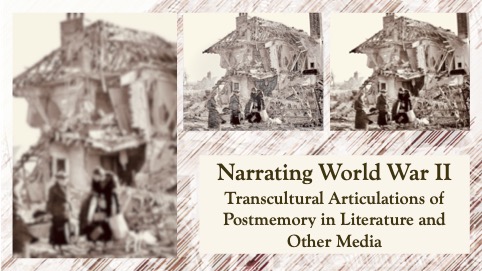A Future-Oriented Past: Deictic Reformulations of WWII in Contemporary War Comics
DOI:
https://doi.org/10.13133/2239-1983/16837Abstract
In recent years, the representation of the Second World War in US pop culture has undergone a radical transformation, especially in war comics. The conflict has indeed ceased to be depicted only in accurate historical reconstructions or on survivors’ personal memories: several recent World War Two comics memorialize historical events only up to a certain point, beyond which they reinterpret history and envision a hypothetical future staged on World War Two but inspired by contemporary elements and preoccupations. In light of this transformation, this essay will demonstrate how one of the main products of post-generational comics about World War Two is a representational mode originated from a multi-layered imagination of the war itself, rooted in historical records but contaminated by post-Cold War era cultural tropes. This examination transcends Marianne Hirsch’s notion of postmemory as strictly activated within familial bonds, but it implies the transfer of World War Two collective memory to a post-generation (broadly intended) of people “who were not actually there.” I will focus on Garth Ennis’ miniseries Bloody Mary (1996), and Kieron Gillen’s ongoing series, titled Über (2013-present). Both texts envision dystopian contemporary societies torn apart by World War Two, which did not end in 1945 but continued into the 21st century, and both narratives present elements pertaining to the official memory, as well as on a constellation of components which are part of a contemporary and deictic war imagination.
Downloads
Published
How to Cite
Issue
Section
License
Gli autori che pubblicano su questa rivista accettano le seguenti condizioni:- Gli autori mantengono i diritti sulla loro opera e cedono alla rivista il diritto di prima pubblicazione dell'opera, contemporaneamente licenziata sotto una Licenza Creative Commons - Attribuzione che permette ad altri di condividere l'opera indicando la paternità intellettuale e la prima pubblicazione su questa rivista.
- Gli autori possono aderire ad altri accordi di licenza non esclusiva per la distribuzione della versione dell'opera pubblicata (es. depositarla in un archivio istituzionale o pubblicarla in una monografia), a patto di indicare che la prima pubblicazione è avvenuta su questa rivista.
- Gli autori possono diffondere la loro opera online (es. in repository istituzionali o nel loro sito web) prima e durante il processo di submission, poiché può portare a scambi produttivi e aumentare le citazioni dell'opera pubblicata (Vedi The Effect of Open Access).


